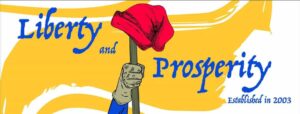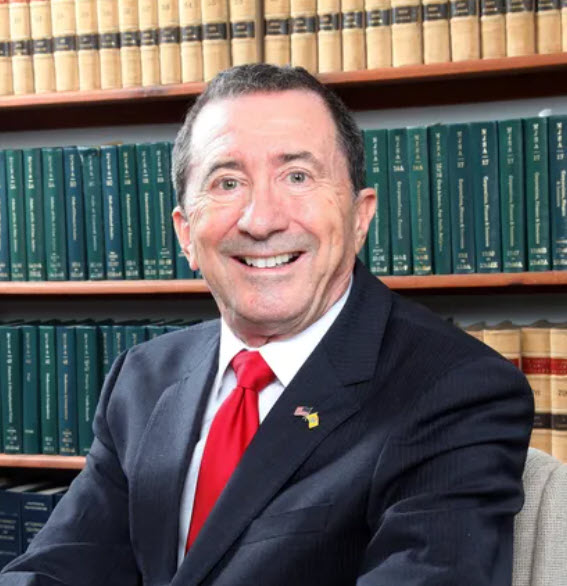George Washington’s birthday, February 22, was a big deal when I grew up in Atlantic City in the 1950s. All the schools and the Post Office were closed that day. Washington’s Birthday was February 22, no matter what day of the week it was. For weeks before, we had special assemblies in school about George Washington and Abraham Lincoln, whose birthday was February 12. There we were taught of how George Washington created our country, and how Abraham Lincoln freed the slaves and kept it together. We learned and sang patriotic songs like Yankee Doodle, America, This Is My Country, and Battle Hymn of the Republic, songs few American children even heard of today.
The walls of the hallways of my Richmond Avenue Elementary School were covered with tributes to George Washington and Abraham Lincoln we had made with crayons, watercolors, construction paper and doilies. My favorite was the black side-to-side profiles of George Washington and Abraham Lincoln stuck to white doily backgrounds with library paste we had made with flour and water. The newspapers were filled with ads from the local stores and car dealerships promoting special George Washington sales. Most of them had images of a young George Washington holding a hatchet in front of a cherry tree.
All that came to an end which I got out of college in 1971. In June of 1968, Democrat President Lyndon Johnson and Democratic super majorities in the Senate and House of Representatives passed the “Monday Holiday Act of 1968”. It replaced Washington’s Birthday on February 22 with a new federal holiday now commonly called “Presidents Day” on the third Monday of February. Ironically, this guaranteed that “President’s Day” would never fall on George Washington’s actual birthday on February 22. The new law took effect on the third Monday of 1971.
That “Monday Holiday Act of 1968” also made moved Memorial Day, often called “Decoration Day”, from May 30 to the last Monday in May. It also moved Columbus Day from October 12, the day Columbus first landed to America, to the meaningless second Monday in October.
I do not think it is a coincidence that George Washington’s birthday was “cancelled” in a year when America seemed to be falling apart. In January of 1968, Communist forces in Vietnam humiliated the American army in a “Tet Offensive” that convinced many Americans that the war was lost. Massive demonstrations against the American government took place around the world and in most college campuses. In March, 1968, Democratic President Lyndon Johnson, elected by a landslide just four years earlier, announced he would not seek re-election. In April of 1968, Martin Luther King was murdered, and deadly and destructive riots broke out in America’s largest cities. In June of 1968, Massachusetts Senator and Democratic Presidential candidate Bobby Kennedy was murdered. In August, there were riots in Chicago for the Democratic National Convention. At that same time, Communist Russia invaded Czechoslovakia when America was too weak and divided to do anything about it.
IN 1968, America desperately needed a national hero, a national holiday, and a national purpose to bring our country together. Why did our President and Congress “cancelled” our George Washington holiday and replace it with a three day weekend?
At first, I was sure this was done by Communists and leftists who hated America. However, the Congressional Record of May 6, 1968 shows that the Chamber of Commerce and big corporations pushed for the change. Representatives of the Vermont ski industry testified that Vermont would make millions more each year if the Washington’s Birthday holiday became part of a three day weekend every year. Factory owners said they would save a lot of money closing down for a Monday, rather than for a Washington’s Birthday holiday in the middle of a week.
Russian Communist leader Vladimir Lenin (1870-1924) knew what he was talking about when he said “The businessmen (capitalists) will sell us the rope we will hang them with”.
It has now been more than fifty years since the “Presidents Day” three day weekend replaced George Washington’s Birthday. During that time, both George Washington and Abraham Lincoln have been effectively erased from American culture. February is now “Black History Month” in our schools and there is little or no time to talk about either Washington or Lincoln.
Black History Month began as “Negro History Week” in the 1920’s. It was created to counter the negative stereotypes created by the 1915 racist Hollywood movie “Birth of a Nation”. That movie was used to suppress the votes of Black Americans, who at that time voted solidly Republican. “Negro History” week used the February 12 birthday of President Abraham Lincoln and the February 14 birthday of Frederick Douglass to present a week of programs explaining the contributions of black Americans to our country’s greatness. In 1976, Republican President Gerald Ford endorsed expanding that one week program into Black History Month for the entire month of February. That, together with observances of Martin Luther King Day in January had the effect of removing almost all teaching about George Washington and Abraham Lincoln in our schools. This is truly a national tragedy.
George Washington was far more than a great American. His whole life was an example of how every American should live. His achievements were so extraordinary, that there would not have been an America as we know it without him. Yet very few Americans today know that.
George Washington grew up with hardship. His father died when Washington was 11 years old. Most property owned by George Washington’s father went to the children of his first wife–the half-brothers and sisters of George Washington. George Washington had to quit school to work his family’s small farm while George Washington’s mother cared for his younger sister and three younger brothers.
At age 15, Washington made himself an apprentice to a land surveyor. George Washington did not want to be a small farmer. When George Washington was growing up, the sale and development of large tracts of wilderness land to the west was the biggest business in Virginia. That business was dominated by a handful of very wealthy landowners. As a teenager, Washington realized that the only way a poor outsider like him could be part of it was to become a land surveyor. To learn this profession, Washington worked for years without pay as an “apprentice”. That included taking many long and dangerous trips hundreds of miles into the wilderness.
During this time, Washington constantly read books to give himself the equivalent of a college education. When he returned home, he dressed well and carefully rehearsed dancing, table manners, and dinner conversation so he could comfortably mix socially with the rich and powerful.
Because of his social and networking skills, Washington was put in command of? his local part-time, militia unit even though he lacked formal military training. Once again, Washington read books, learned from others, and taught himself.
At age 21, Washington’s militia unit was sent to chase French soldiers away from what is now Pittsburgh, Pennsylvania. This started an eight year war with France.
George Washington was the victim of discrimination.? Washington dreamed of a career as a general in the British army. Although Washington had proven himself to be a smart, brave and capable commander, he was denied promotion in the British army because he was an American, a mere colonial. He lacked family and political connections in England.
?Washington turned to business instead.? He married Martha Custis, a wealthy widow with business management skills and experience.? During the next 10 years, the two? expanded their farms and also started many successful businesses that included fishing fleets, flour mills, cloth and whisky production.
During this time, Washington also began to resent British taxes and laws that put unfair burdens on his businesses, and gave unfair advantages to political insiders in England. When Americans in Boston rebelled against those same laws and taxes, Washington supported them.? In 1775, the Continental Congress put Washington in command of its new Continental Army.
When the British offered freedom to American slaves who joined them, some of Washington?s slaves took that offer.? This profoundly affected Washington. After the war, Washington supported laws and provisions in the Constitution to limit and gradually end slavery. He freed his own slaves when he died.
As commander of America’s first army, Washington developed a uniquely American management style. Unlike the British, Washington appointed and dismissed his commanders only on talent and performance. When Washington introduced a new plan or idea, he usually pretended it was the suggestion of someone else so his junior officers would give their honest opinions. When plans failed, Washington took full responsibility. When the cause seemed hopeless, Washington persisted through all eight years of the war.

There were times during the was when Washington’s solders wanted to march on Congress and take over the government. Washington repeatedly stopped them. When his soldiers asked Washington to run the country as a king or dictator, he refused.
After the war, the thirteen newly independent states almost ruined the economy by taxing goods brought in from other American states.George Washington suggested changes to the Articles of Confederation to stop this. Washington then presided over the Constitutional Convention? in Philadelphia in 1776.
Washington was first elected President in 1788.??? He was elected for another four year terms in 1992.?? He was urged to run for a third term in 1796, but Washington stepped down after two terms.
How much of this story did you and your children learn during President’s Day this year? Why has this story of George Washington been systematically erased from our national memory? Short answer:? Google “Yuri Bezmenov”, “active measures” or “ideological subversion” or search these words on YouTube.? https://www.youtube.com/watch?v=mqSV72VNnV0
Seth Grossman, Executive Director
LibertyAndProsperity.org

